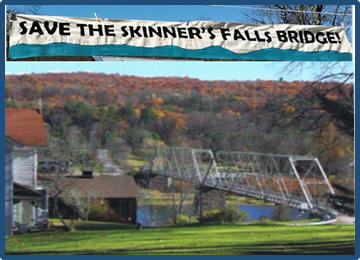PA Farmers Speak Out Against Fracking
May 7, 2012Add Your Name to Our Mother’s Day Letter to Michelle Obama
May 14, 2012The Pennsylvania Department of Health says it investigates every claim by residents that gas drilling has caused health problems, but several people say the agency’s actions don’t match its words.
Two western Pennsylvania residents told The Associated Press that health officials have fallen short in responding to their health complaints.
The AP also found that the toll-free number the agency gives out for gas drilling complaints doesn’t mention the issue in its automated menu, and the agency’s website doesn’t have a specific place for people to file such complaints.
And the AP inquiry showed that the agency didn’t begin keeping track of possible health complaints tied to gas drilling until 2011, several years after a surge of activity in the gas-rich Marcellus Shale.
“Everybody kind of just passed the buck,” said Sheri Makepeace, a northwestern Pennsylvania resident who said that starting last year she tried calling the Department of Health and other agencies over fears that nearby drilling created health problems. “I’ve talked to so many different people and have gotten so many different stories.”
Christine Cronkright, a spokeswoman for the agency, said the agency stands by earlier statements that it responds to, investigates and issues a formal response to all complaints about gas drilling and public health. Officials are working on how and where to share information on the issue with the public and expect to release details in the near future, she said.
The AP also found that previous responses from the Department of Health about the numbers of complaints it has received about drilling and health have been at best confusing and at worst misleading.
The agency first told the AP that it had received a total of about 30 complaints, and then modified that to being 30 over the last year. Now, the agency says it didn’t even begin recording such complaints until 2011.
Cronkright also told the AP that the agency has no current investigations regarding people who claim gas drilling has impacted their health.
That puzzles Janet McIntyre, one of Makepeace’s neighbors.
She made a formal complaint by phone in late February and said a health department employee replied that he would get back to her in a few days. McIntyre said she purposefully waited 30 days for a response but none came.
“He sounded as if he wanted to get right on it. And that I would have people calling me,” she said. “I was very frustrated. I was getting nowhere. That was disheartening.”
The AP started asking the health department about problems in responding to complaints in April, and then in early May McIntyre sent a letter to the agency, outlining her experience.
On Thursday a health official called her to apologize, she said, adding that “they dropped the ball. But at least they picked it up again.”
One public health expert who’s working on gas drilling complaints in Pennsylvania said the health agency is in a difficult position.
“I’m not surprised that their protocols are a little difficult to get in place. The response to something like this is really hard,” said David Brown, a former head of environmental epidemiology in Connecticut who is now working with the nonprofit Southwest Pennsylvania Environmental Health Project to examine complaints about gas drilling.
Until a few months ago, Pennsylvania health officials had expected to get a share of the revenue being generated by the state’s new Marcellus Shale law, which is projected to provide about $180 million to state and local governments in the first year.
But representatives from Republican Gov. Tom Corbett’s office and the state Senate cut the health appropriation to zero during final negotiations, so now the agency is left with a new workload but no funding for the job.
“I can tell you right now, you cannot do this on a shoestring,” Brown said of investigating and responding to questions about gas drilling and public health.



